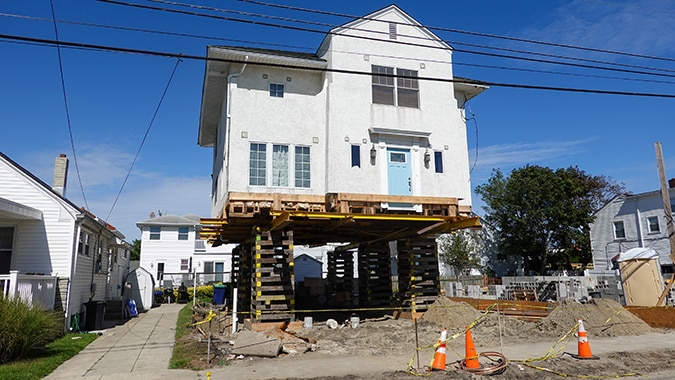On behalf of our member companies that provide more than 1 million jobs in the state and make us the largest statewide business association in the country, the New Jersey Business and Industry Association (NJBIA) thanks Chairman Sarlo and the members of the Senate Budget & Appropriations Committee for allowing us to share the Association’s views on the FY 2019 State Budget as proposed by Governor Murphy.
Each year in the budget making process, NJBIA advocates for a fiscally sound state budget that provides certainty and predictability for the business community. Our goal is to ensure that New Jersey will reclaim its stature as the innovation state; the home of economic vitality, business prosperity, workforce skill excellence and a great quality of life so that NJBIA members can grow and sustain.
Over the past several years there have been a number of positive changes made towards improving the state’s business climate. These efforts have lowered the tax burden for businesses and individuals, which is needed to make New Jersey more competitive both regionally and nationally. Perhaps most importantly, these changes were achieved in a bipartisan fashion with meaningful input from the state’s business community.
Ultimately, these changes helped to improve the state’s business climate and encouraged companies to stay in or relocate to New Jersey.
And our economy is improving. New Jersey employers added more than 43,000 jobs in 2017, while the state’s unemployment rate fell to 4.6 percent as of March 2018. These indicators show that the New Jersey economy continues to grow as employers are investing in their businesses and creating jobs. Additionally, these indicators reflect the feelings of guarded optimism expressed by our members in the annual NJBIA Business Outlook Survey.
It is important to keep the momentum going and continue to send positive signals to the business community. While the FY 2019 budget positions New Jersey for the 21st century, there are a number of proposals that are concerning because of the negative impact they may have on New Jersey’s competitiveness and affordability, for both individuals and businesses.
The FY 2019 budget proposal includes a “millionaires tax” provision, which would increase the top income tax rate to 10.75 percent on income above $1 million. New Jersey’s current top rate is 8.97 percent on income over $500,000.
NJBIA has long opposed a millionaires tax, as it will directly impact small companies that provide jobs and help drive New Jersey’s economy, including the businesses which represent over 8 percent of all Gross Income Tax (GIT) revenue reported by businesses in 2015. Additionally, over the past 12 years, New Jersey has experienced a net loss of nearly $25 billion in adjusted gross income, as businesses and residents look towards more tax-friendly states. An increase on the top Gross Income Tax rate will make us less competitive within our region, especially our top two outmigration states of Pennsylvania and New York.
Additionally, the Governor’s budget recommends a number of changes to the way in which New Jersey taxes corporations. These changes include combined reporting with a limited “water’s-edge” election, market-based sourcing, and the reinstitution of the taxation of international holding companies. The Governor’s business tax proposals also include a one-time tax on the deemed repatriation of foreign-held assets, while further incorporating other revisions to hold New Jersey harmless for certain provisions related to the recent federal tax reform plan.
We are awaiting more details on many of the proposed changes to the way in which New Jersey taxes corporations as mentioned above, and how they interact with the changes under the recent federal tax reform plan. NJBIA is concerned about the impact these changes will have on the larger corporate taxpayers in the state. These are the companies that choose to call New Jersey home and invest in the state with both facilities and jobs.
Furthermore, budget spending and revenue shortfalls have resulted in Clean Energy Fund diversions under administrations of both parties, and this year is no different with about $150 million being reallocated to other funds. For over a decade NJBIA has advocated that the BPU reduce the Societal Benefits Charge (SBC), which helps fund the clean energy program, to give ratepayers a reduction in cost. New Jersey business ratepayers pay government imposed taxes and surcharges that amount to close to 25 percent of their electric bill. We would encourage any Clean Energy Fund surplus to be returned to ratepayers instead of being used to balance the general fund.
All of these proposals must be considered as part of the overall cumulative increase on the cost of doing business that New Jersey employers are facing given the discussions of an increased minimum wage, workplace mandates, and increased energy costs. Furthermore, the proposed budget leaves outstanding obligations that will require additional funding in future years, and it is unclear how that revenue will be generated. This creates uncertainty within the business community, which should be avoided in order to achieve the goal of attracting and retaining investment and high paying jobs in New Jersey.
While the FY 2019 budget includes provisions that are concerning to the business community, we are encouraged to see a number of proposals aimed at improving New Jersey’s future workforce and targeted tax relief for homeowners and families.
Recommendations to expand computer science education and invest in STEM-focused high schools, along with programs to prepare workers for technical skilled jobs and upgrade the skills of incumbent workers will help to prepare New Jersey’s future and current workforce. An increased focus on career pathways will help ensure that New Jersey employers have a trained and skilled workforce.
Additionally, measures such as increasing the State property tax deduction cap from $10,000 to $15,000, creating a new state child and dependent care tax credit based on the federal credit and increasing the Earned Income Tax Credit (EITC) from 35 percent to 40 percent of the federal credit over three years, will help make New Jersey a more affordable place to live and raise a family.
As the budget process continues through the spring and into the summer, we look forward to working with you to ensure that the final budget reflects positively on the business community and helps create a more competitive and affordable New Jersey. As our work reflects on a daily basis, NJBIA recognizes that having a competitive and thriving economy is vital to the success of our members and businesses across the state.
Thank you and we appreciate your consideration of the business community and the over 1 million jobs our members provide in the state. Should you have any questions or need further information, please feel free to contact me at 609-858-9512.







